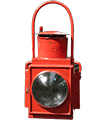Hi folks,
If you're on several modelling fora you will probably see this post several times - apologies! And I hope I've posted this in an acceptable group!
I'm looking to canvas views (and advice) on soldering flux as there seem to be a lot of conflicting opinions and 'facts' (not sure whether the quotes are justified).
There are several types of soldering that I want to do: electronics, track (on PCB), brass kits, white metal kits and, occasionally, track on plastic sleepers (e.g. turnouts).
So far, it seems that for electronics, simple multi-core solder is fine, but liquid flux won't hurt (so long as it's not acid?).
For all the other jobs I've had advice that I should only use liquid flux, that I can use multi-core, that I can use both, that acid flux will attack a joint unless washed and that rosin flux (as in most multi-core) can leave a film which doesn't take paint very well.
Any advice gratefully received!
Pete
Soldering Flux
-
Daddyman
- Posts: 746
- Joined: Sat Jun 03, 2017 1:09 pm
Re: Soldering Flux
Can't speak about electronics or track, but for etched kits I used to use Carr's Yellow as it didn't attack steel tools; however, since switching to LRM's flux, which also doesn't seem to rust tools, my Antex bits last far far longer. It's possible I had a bad batch of bits, but if so it lasted many years; I'm inclined to think the Yellow flux was to blame. Models built using the LRM flux also seem easier to clean.
Rosin flux seems to cause health problems.
Rosin flux seems to cause health problems.
Last edited by Daddyman on Tue Nov 21, 2023 2:48 pm, edited 1 time in total.
-
Porcy Mane
- Posts: 133
- Joined: Wed Apr 11, 2012 4:55 pm
Re: Soldering Flux
Since being recommended this flux many years ago, I now use nothing else.
Great for all sorts of metals/electrics and should any residues be left after cleaning it doesn't turn green.
I use warm water to rinse it off and if I've used it to excess, a drop of freshly sqeezed lemon juice helps with removal.
A google search would probably turn up a cheaper supplier.
https://www.ebay.co.uk/itm/151351510986 ... R7jRkKX-Yg
P
Great for all sorts of metals/electrics and should any residues be left after cleaning it doesn't turn green.
I use warm water to rinse it off and if I've used it to excess, a drop of freshly sqeezed lemon juice helps with removal.
A google search would probably turn up a cheaper supplier.
https://www.ebay.co.uk/itm/151351510986 ... R7jRkKX-Yg
P
-
Winander

- Posts: 861
- Joined: Thu Mar 20, 2014 12:19 pm
Re: Soldering Flux
Daddyman wrote:Can't speak about electronics or track
LRM do two types of flux, 12 and 6% phosphoric acid. I suspect you are using the 12% as the 6% is sold as for low melt solder.
This thread recommends 6% for whitemetal and, I believe, someone who should know says Carr's Yellow is about 12%.
https://www.scalefour.org/forum/viewtopic.php?f=18&t=5237
You can get non-rosin flux for electronics which I always use and for everything else I use Powerflow diluted and in minute quantities.
Liquid fluxes are usually acidic which clean the metal. Rosin flux requires a clean joint.
-
Daddyman
- Posts: 746
- Joined: Sat Jun 03, 2017 1:09 pm
Re: Soldering Flux
Winander wrote: LRM do two types of flux, 12 and 6% phosphoric acid. I suspect you are using the 12% as the 6% is sold as for low melt solder.
Thanks, Richard - 12%, yes.
-
garethashenden
- Posts: 406
- Joined: Tue Apr 07, 2015 9:41 pm
Re: Soldering Flux
My favorite is Superior #30 "SuperSafe" flux. It is self neutralizing with heat, so unless you've absolutely flooded the joint it does not need to be cleaned. I've been using it for years and the only time I've seen corrosion is when I've used too much. Now, I have no idea where to get it in the UK, but that's another matter. https://superiorflux.com/products/super ... ring-flux/
-
David B

- Posts: 1519
- Joined: Sun Jul 20, 2008 5:30 pm
Re: Soldering Flux
I feel there are some more definite 'Dos' & 'Don'ts' such as using a resin flux for electrics and something different for steel. In between, it seems there are as many different views as there are modellers.
Personally, I use Carrs yellow for all my kit building whether it be white metal, brass or nickel silver, and have done for years. However, if you look at my video 'Understanding Soldering', I show a variety of fluxes and advocate trying several (it's cheaper to ask friends if you can try a bit of theirs) and find out what works for you.
People have highlighted problems they have encountered - Powerflow is one which can leave a residue and discolour joints - but these can often be attributed to bad soldering practice and not cleaning your work adequately or often enough (at the end of a modelling session is a useful rule of thumb).
If you are a member of a group or when you go to a show, I suggest actually speaking to people about their experience and spending some time trying out different fluxes. There is no universal or right flux, just what works best for you.
Personally, I use Carrs yellow for all my kit building whether it be white metal, brass or nickel silver, and have done for years. However, if you look at my video 'Understanding Soldering', I show a variety of fluxes and advocate trying several (it's cheaper to ask friends if you can try a bit of theirs) and find out what works for you.
People have highlighted problems they have encountered - Powerflow is one which can leave a residue and discolour joints - but these can often be attributed to bad soldering practice and not cleaning your work adequately or often enough (at the end of a modelling session is a useful rule of thumb).
If you are a member of a group or when you go to a show, I suggest actually speaking to people about their experience and spending some time trying out different fluxes. There is no universal or right flux, just what works best for you.
-
Guy Rixon

- Posts: 911
- Joined: Sun Mar 27, 2011 6:40 pm
Re: Soldering Flux
You definitely can use rosin-cored solder with liquid flux. I've been using cored 60-40 with Carr's Green flux for years. The rosin core makes it easy to tin the bit and the acid flux does everything else.
The thing that doesn't work is cored solder with Carr's Red flux on brass. Tried that once when I was short of proper flux. It filthed up the metal with a deposit before any joint could form. Oddly, it seems to work on nickel silver.
I wash off surplus flux in an ultrasound bath.
The thing that doesn't work is cored solder with Carr's Red flux on brass. Tried that once when I was short of proper flux. It filthed up the metal with a deposit before any joint could form. Oddly, it seems to work on nickel silver.
I wash off surplus flux in an ultrasound bath.
-
Paul Cram
- Posts: 82
- Joined: Sun Jun 09, 2019 10:17 am
Re: Soldering Flux
I use phosphoric acid for everything although I do use cored solder to tin the Iron every so often.
-
Jol Wilkinson

- Posts: 1116
- Joined: Mon Jul 21, 2008 7:39 pm
Re: Soldering Flux
I use LRM 12% Phosflux for kits with the usual 145, etc. solders, cored solder for wiring/electronics. Occasionally I use some Fluxite with cored solder to improve initial cleaning and heat transfer.
Bits a re kept clean by regular use of one of those brass scrub bud type cleaners (from Hobby Holidays). No problems with bit tinning and cleanliness, either with an Antex 50W TCU or Antex 25W irons.
Bits a re kept clean by regular use of one of those brass scrub bud type cleaners (from Hobby Holidays). No problems with bit tinning and cleanliness, either with an Antex 50W TCU or Antex 25W irons.
-
brightonBreezy
- Posts: 2
- Joined: Wed Oct 25, 2023 8:48 am
Re: Soldering Flux
Thanks so much to everyone who has replied - much very helpful advice has been heeded!
As an aside, I have just ordered some desoldering braid as part of a small Temu order. I know they're a 'marketplace' operation but, really?!
As an aside, I have just ordered some desoldering braid as part of a small Temu order. I know they're a 'marketplace' operation but, really?!
You do not have the required permissions to view the files attached to this post.
Pete
Brighton, UK
Brighton, UK
-
David B

- Posts: 1519
- Joined: Sun Jul 20, 2008 5:30 pm
Re: Soldering Flux
I am told desoldering braid is useful to have in one's toolbox. I have some but I can't think of a single occasion when I have used it.
-
martin goodall
- Posts: 1425
- Joined: Fri Oct 02, 2009 6:20 pm
Re: Soldering Flux
David B wrote:I am told desoldering braid is useful to have in one's toolbox. I have some but I can't think of a single occasion when I have used it.
I certainly have had occasion to use my de-soldering braid. Through carelessness or incompetence, I have sometimes ended up with too much solder being deposited on a workpiece or getting solder where it was not intended to go. In such circumstances, de-soldering braid is a life-saver. I simply apply plenty of flux to a length of braid, hold it on top of the unwanted or misplaced solder and apply the iron to the braid, and it wicks up the solder very effectively.
I suspect that the reason that David has found no use for de-soldering braid is that (unlike me) he is very accurate in his soldering and in fact can genuinely be regarded as a soldering expert, whereas I am a clumsy solderer, although I am trying to improve my technique, guided by the extremely helpful video guide to soldering that David produced a couple of years ago.
Return to “Tools and Techniques”
Who is online
Users browsing this forum: ClaudeBot and 0 guests